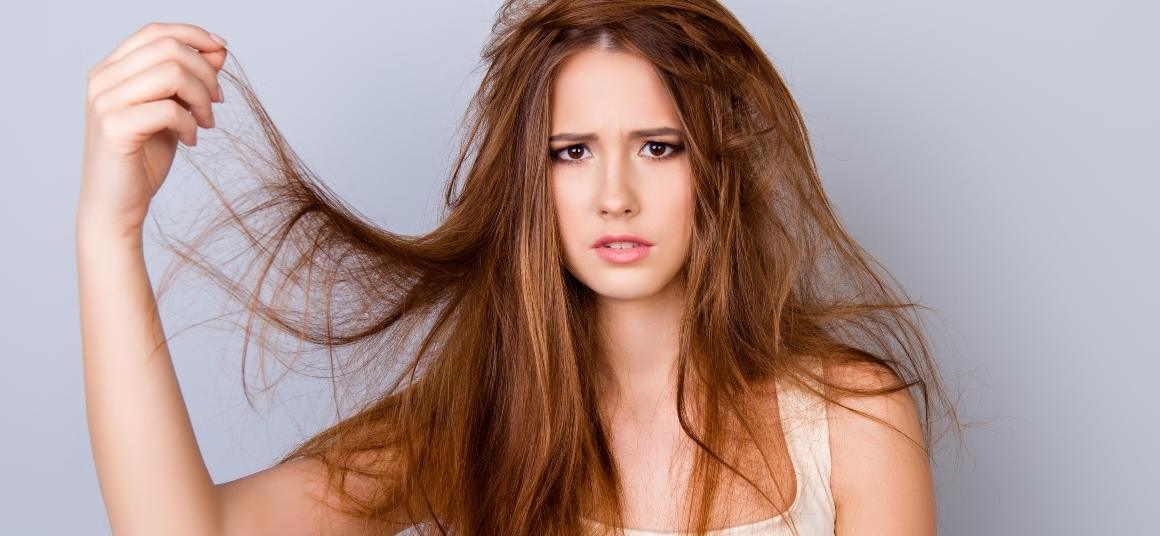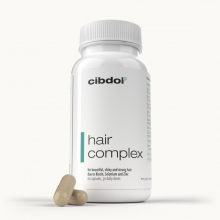What are 7 factors that affect hair growth
Published:
Hair growth and health are influenced by many factors. Understanding what affects hair can help you take better care of your locks and potentially improve hair growth. This article explores the key factors that impact hair growth rate, hair loss, and overall hair health. Read on to learn what you can do to optimize your hair growth and maximize thickness and shine.
Contents:
- Hair Growth Cycle Basics
- Hair Growth Rate and Speed
- Key Factors That Affect Hair Growth and Health
- Tips for Improving Hair Growth
- The Key Takeaways on Hair Growth Factors
- What are the factors that affect hair growth?
- How does hair health affect hair growth?
- What factors affect hair health?
- Can hair loss affect hair growth?
- What are some treatments for hair growth?
- Do factors that affect hair health also affect the rate of hair growth?
- How can I stimulate hair growth?
- Can hair problems like hair thinning and breakage be prevented?
- Can hair loss be reversed?
- Is hair loss more common in women than in men?

Hair Growth Cycle Basics
Before diving into factors affecting hair, it's helpful to understand the natural hair growth cycle. Each hair follicle on your scalp goes through three main phases:
- Growth (anagen) phase - lasts 2-7 years, when the hair actively grows at a rate of around 1 cm per month. This phase accounts for 85-90% of the hair growth cycle.
- Resting (catagen) phase - lasts 2-3 weeks, signals the end of the active growth phase.
- Shedding (telogen) phase - lasts 2-3 months, old hair detaches and falls out to make way for new hair growth.
At any given time, around 85% of your hair is in the growing phase, 10% in the resting phase, and 5% in the shedding phase. Factors that disrupt this cycle can inhibit hair growth and cause excessive shedding or hair loss.
Hair Growth Rate and Speed
The speed at which your hair grows is determined by factors like age, genetics, and hormones. Here's a quick overview:
- On average, hair grows around 0.5 inches per month or 6 inches per year.
- Hair growth rate peaks in the late teenage years and starts slowing in the 30s and 40s.
- Ethnic differences can also impact growth rate. For example, Asian hair grows the fastest while African hair grows the slowest.
- Hormones like testosterone speed up hair growth, while low thyroid hormone slows it down.
- Nutrient deficiencies, stress, smoking, medications, and health conditions can all slow the hair growth rate.
While you can't change intrinsic factors like age or genetics, you may be able to improve hair growth by optimizing modifiable factors like nutrition, stress, hormones, and scalp health.
Key Factors That Affect Hair Growth and Health
Now let's explore the major factors that influence hair growth cycle, hair loss, and overall hair health:
Nutrition
Consuming a balanced diet with adequate protein, vitamins, minerals, and healthy fats is key for optimal hair health. Deficiencies in iron, zinc, biotin, vitamin D, and protein can all impact the hair growth cycle. Ensure you meet the recommended daily intakes.
Hormonal Changes
Hormones like androgens, estrogen, progesterone, and thyroid hormone all influence hair growth. Hormonal imbalances due to menopause, pregnancy, thyroid disorders or other endocrine conditions can disrupt the hair growth cycle and hair texture.
Medications
Certain medications like antidepressants, blood pressure drugs, cholesterol drugs, and birth control pills can contribute to hair loss for some individuals. Talk to your doctor if you notice increased shedding.
Age and Genetics
Aging naturally causes decreased hair production from the follicles. Genetic predisposition also impacts the age of onset and severity of hereditary hair loss conditions like male/female pattern baldness.
Stress
Physical and emotional stress pushes more hair follicles into the shedding phase. Acute stressors or chronic stress can cause noticeable hair shedding and thinning. Managing stress is key for hair health.
Scalp Conditions
Issues like dandruff, psoriasis, fungal infections, and bacteria can inflame the scalp and impair hair growth. Maintaining a healthy scalp environment is important.
Hairstyling and Products
Certain hair products and aggressive styling/processing like bleaching, relaxing, tight braids and heat tools can damage the hair cuticle and cause breakage. This gives the appearance of thinning.
Smoking and Pollution
Smoking can damage the hair follicles and make hair more brittle and prone to falling out prematurely. Environmental pollutants can also deposit toxins onto the hair and scalp that inhibit growth.
Weight Loss and Low Protein
Some people notice increased shedding with significant or rapid weight loss. Low protein intake can also contribute to hair loss. Ensure you maintain adequate protein and calories.
Autoimmune Diseases
Conditions like alopecia areata cause patchy hair loss when the immune system attacks the hair follicles. Other autoimmune diseases can also potentially impact hair health and growth.
Tips for Improving Hair Growth
While you can't fully change intrinsic factors like your genes, age or natural hair type, the following tips can help optimize modifiable factors to improve hair growth and volume:
- Eat more protein, vitamins A, C, and B complex, zinc, iron and healthy fats
- Correct any nutrient deficiencies
- Manage stress through yoga, meditation, therapy, exercise, or other relaxation techniques
- Treat any scalp conditions like dandruff as soon as possible
- Avoid aggressive hair styling that can cause breakage
- Use gentle, nourishing hair products and protect hair from heat styling
- Quit smoking and minimize exposure to pollutants
- Consider hair growth supplements like biotin, saw palmetto, collagen, and Viviscal
- Ask your doctor about prescription medications like spironolactone or finasteride for hereditary hair loss
- Get regular trims to prevent split ends and maintain healthy hair
While genetics play a key role, focusing on an optimal diet, health, hair care, and scalp environment can help maximize hair health and growth potential. Be patient as noticeable improvements in hair growth happen gradually over months. If hair loss persists, see your dermatologist to identify any underlying issues. With time and consistency, most people can improve hair volume, growth rate, and shine.
The Key Takeaways on Hair Growth Factors
- Many intrinsic and extrinsic factors like age, genetics, hormones, diet, medications and disease affect the complex hair growth cycle.
- Hair loss and inhibited growth can occur if hair follicles are pushed prematurely from the growing phase to the resting and shedding phases.
- While intrinsic genetic factors can’t be changed, focusing on diet, scalp health, reducing stress, avoiding damage, and optimizing hair care can maximize growth potential.
- Have patience when aiming to improve hair growth. Noticeable changes happen progressively over months of consistency. Seek medical advice if hair loss persists.
- Getting regular trims, minimizing damage, and nourishing the scalp and hair fibers from root to tip can enhance hair health and volume.
Healthy, growing hair depends on many variables. Understanding your hair's unique needs and growth patterns allows you to tailor a personalized hair care regimen to promote optimal moisture, strength, shine and growth. With time and consistency, your mane will be looking and feeling its best.
What are the factors that affect hair growth?
There are several factors that can affect hair growth. Some of the common factors that influence hair growth include the health of your hair, the rate of hair growth, and the phase of the hair cycle.
How does hair health affect hair growth?
Hair health plays a crucial role in determining the rate and quality of hair growth. If your hair is healthy, it is more likely to grow faster and stronger.
What factors affect hair health?
Several factors can affect hair health, including genetics, diet, stress levels, hormonal imbalances, and certain medical conditions.
Can hair loss affect hair growth?
Yes, hair loss can affect hair growth. When hair follicles are damaged and hair loss occurs, it can take a toll on the rate and quality of hair growth.
What are some treatments for hair growth?
There are various treatments available to promote hair growth, such as topical medications, laser therapy, hair transplantation, and lifestyle changes.
Do factors that affect hair health also affect the rate of hair growth?
Yes, factors that affect hair health can also impact the rate of hair growth. If your hair is not in a healthy condition, it may grow at a slower rate.
How can I stimulate hair growth?
There are several ways to stimulate hair growth, including maintaining a balanced diet, avoiding excessive heat and chemical treatments, massaging your scalp, and using hair growth products.
Can hair problems like hair thinning and breakage be prevented?
Yes, hair problems like hair thinning and breakage can be prevented by taking proper care of your hair, avoiding harsh treatments, and using products specifically designed to promote hair health.
Can hair loss be reversed?
In some cases, hair loss can be reversed with appropriate treatment. However, it is important to consult with a healthcare professional to determine the underlying cause of hair loss and the best approach for treatment.
Is hair loss more common in women than in men?
Hair loss can affect both men and women, but the pattern and causes of hair loss may vary. Women are more prone to experiencing hair thinning and overall hair loss compared to men.















